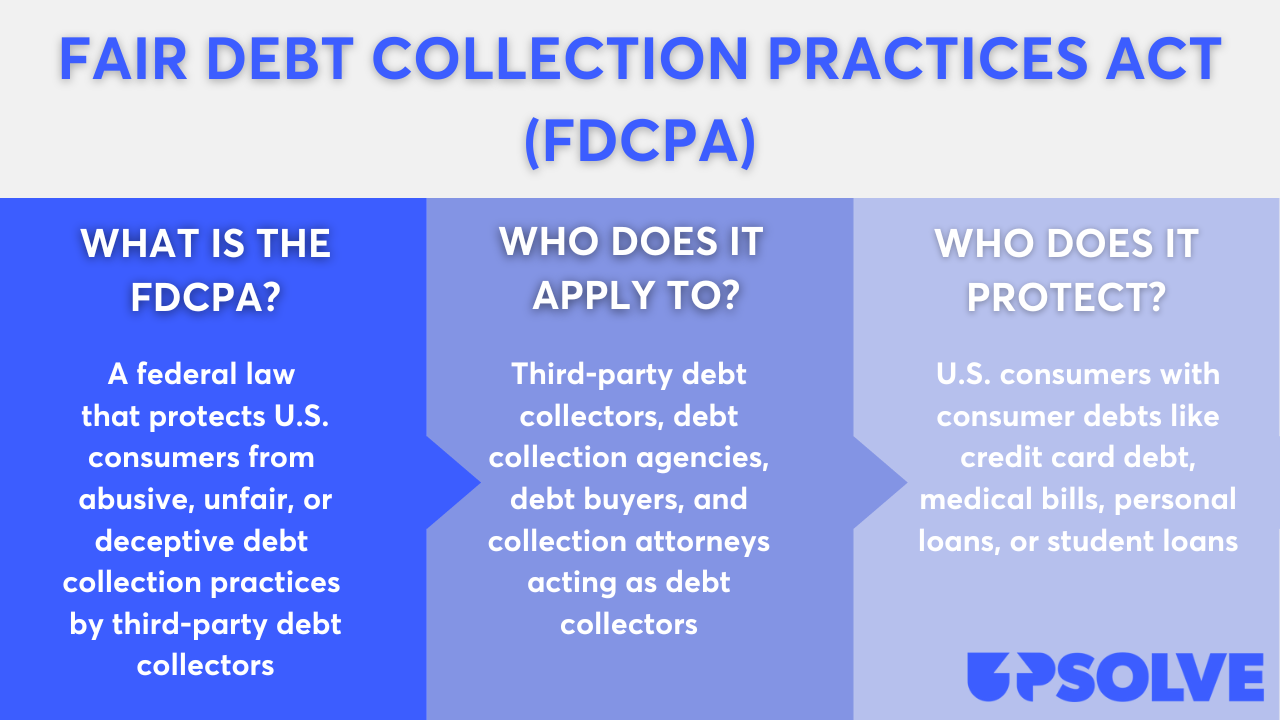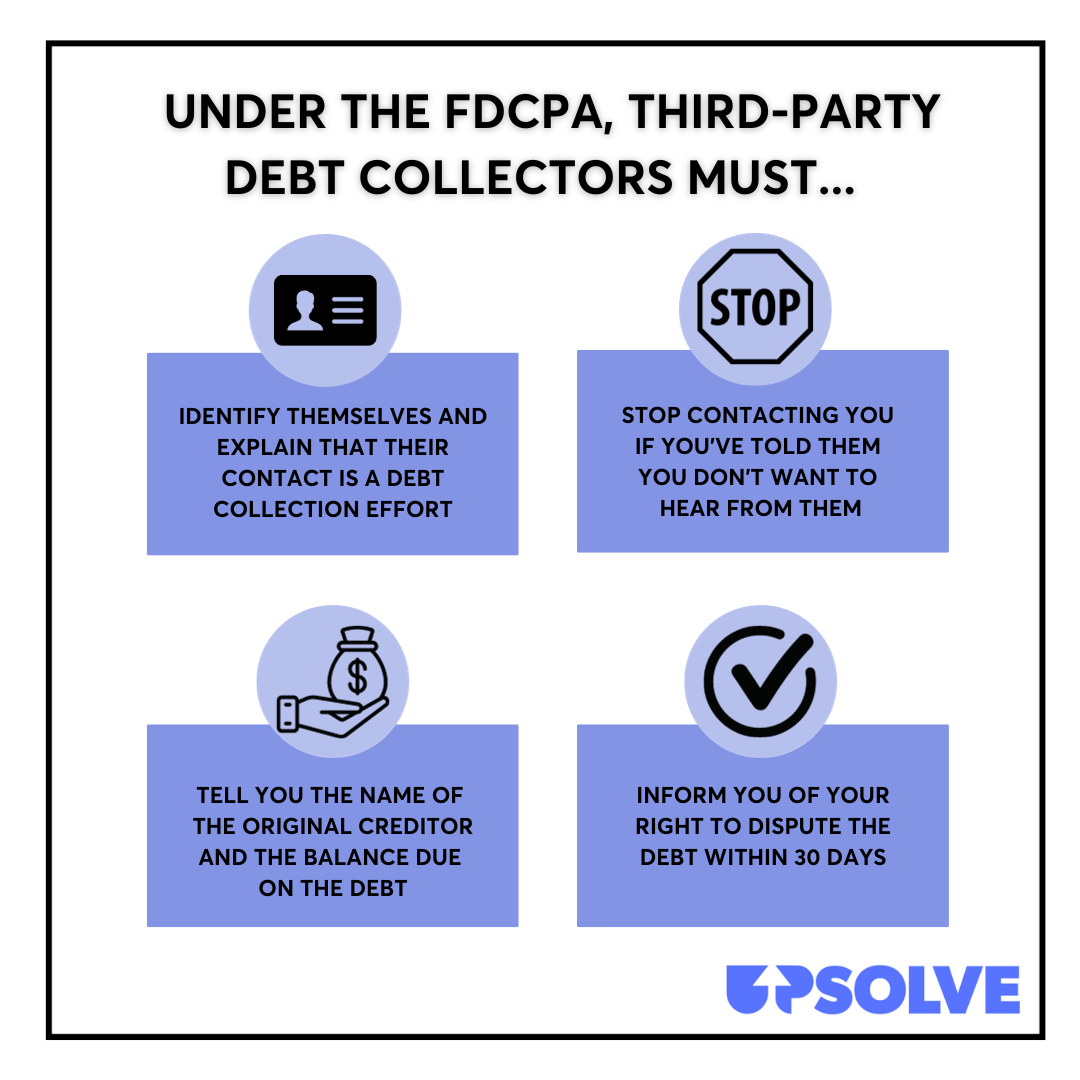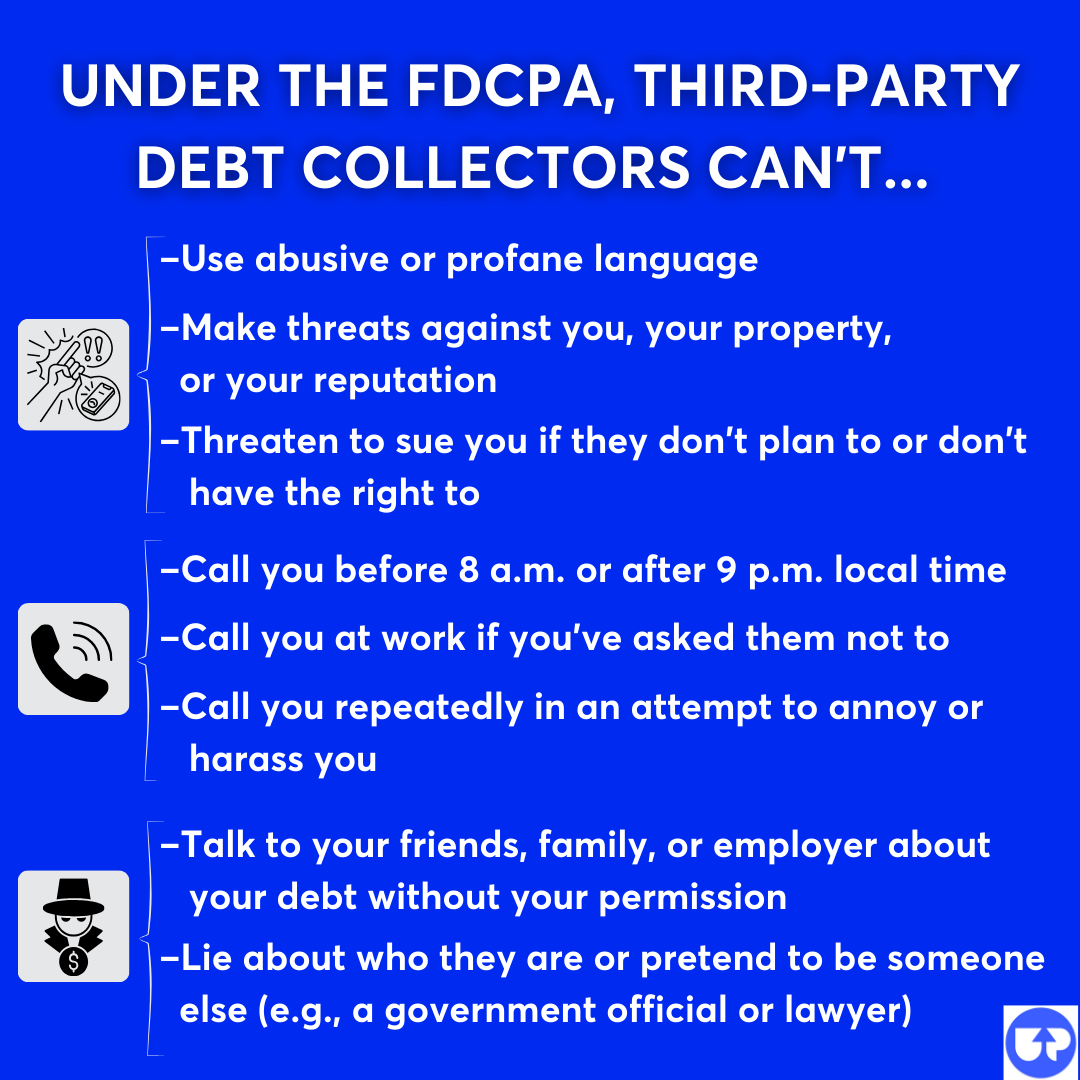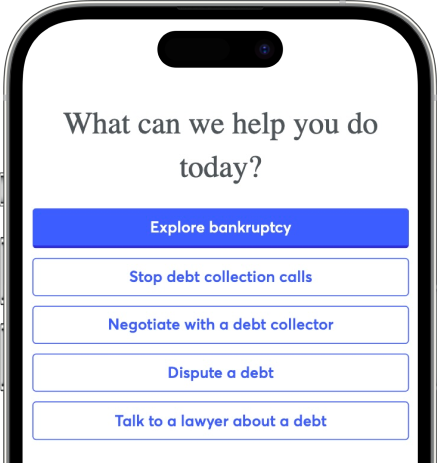Your Guide To Ohio’s Debt Collection Laws
Upsolve is a nonprofit that helps you get out of debt with free debt relief tools and education. Featured in Forbes 4x and funded by institutions like Harvard University so we'll never ask you for a credit card. Get debt help.
Ohioans are protected by the federal Fair Debt Collection Practices Act (FDCPA) as well as the Ohio Consumer Sales Practices Act (OCSPA). Both laws regulate debt collection activities and strive to prevent abuse and harassment. The FDCPA applies only to third-party debt collectors. The OCSPA covers some original creditors, too.
In Ohio, the statute of limitations for credit card debt is six years, and the statute of limitations for medical debt is four years.
Written by Upsolve Team.
Updated November 14, 2023
What Are the Debt Collection Laws in Ohio?
Ohio residents are covered by state and federal consumer protection laws. At the federal level, the Fair Debt Collection Practices Act (FDCPA) prohibits harassing and deceitful behavior from third-party debt collectors. At the state level, the Ohio Consumer Sales Practices Act (OCSPA) is the primary law that regulates third-party debt collection agencies and some original creditors.
How Does the Federal Fair Debt Collection Practices Act (FDCPA) Protect Ohioans?
The FDCPA is a federal law that regulates third-party debt collectors’ practices.
Here’s a basic overview of this important federal law:

The FDCPA aims to protect consumers from debt collector harassment and provide transparency about your rights in the debt collection process. Here are the main rights and protections under the law:


How Does the Ohio Consumer Sales Practices Act (OCSPA) Protect Ohioans?
The federal Fair Debt Collection Practices Act and the Ohio Consumer Sales Practices Act have similar goals. Both aim to regulate the debt collection process to prevent abuse, deception, and unfair practices. While the FDCPA applies only to third-party debt collectors, the OCSPA applies to the original lender or seller in many cases. It excludes some financial institutions, though, such as banks.
If you’re dealing with an original creditor or lender and you aren’t sure if they are subject to the OCSPA, you may want to schedule a free consultation with an attorney to learn how the state law affects your case.
What Can You Do if a Debt Collector Breaks the Law in Ohio?
If a debt collector violates the state’s Consumer Sales Practices Act, you can file a complaint and/or file a lawsuit against the debt collector.
File a Complaint
At the state level, the attorney general’s office helps enforce the state’s consumer protection laws. The attorney general can investigate complaints and may be able to help you and the debt collector agree to a solution. Unfortunately, many debt collectors do participate in harassing or abusive practices. It’s important to report them to help protect yourself and others. You can file your complaint online.
You can also file a complaint with the Consumer Financial Protection Bureau (CFPB). The CFPB is a federal agency that helps enforce federal consumer protection laws. Many debt collectors contact people across the nation. Filing a complaint with the CFPB can help the agency see trends in complaints and figure out which companies are frequent offenders. They can and do take action against companies that violate the law.
File a Lawsuit Against the Debt Collector
If you believe a debt collector has violated state law, you can sue them in an Ohio civil court for actual and noneconomic damages. This essentially means you can get compensation for any actual funds you lost due to the violation, and you get additional compensation for having to deal with this issue. The amount you may be able to win in court will depend on which sections of state law the debt collector violated.
At a minimum, you could win a court judgment covering the actual damages and up to $5,000 in noneconomic damages. You usually need to file the lawsuit within one year of the violation occurring.
If the debt collector has also violated the FDCPA, you can sue them in federal court for actual damages and statutory damages of up to $1,000.
You can bring a debt collection lawsuit yourself, but if you feel more comfortable getting legal help, see if you can find a lawyer who offers a free consultation and will take your case on contingency. This means they don’t require payment upfront. Instead, they get paid from any winnings you get from the lawsuit.
Upsolve Member Experiences
1,997+ Members OnlineWhat Is the Statute of Limitations for Debt Collection in Ohio?
The statute of limitations is an important state law that puts a timeline on how long debt collectors have to bring a debt collection lawsuit against you for an unpaid debt.
Here’s how the statute of limitations is defined:

In Ohio, the statute of limitations is:
Six years for most consumer debts, including credit cards and other debts with written contracts
Four years for medical debt and debts with contracts that aren’t in writing
Four years for any “contract of sale,” which could include car loans and home loans
The statute of limitations is one of the most common types of defenses brought in debt collection cases. It can be tricky to figure out exactly when the statute of limitations clock started ticking for a given debt. And be aware that if you admit to owing the debt, agree to repay it, or make even a partial payment toward an old debt, you can restart the clock. If you get sued for a debt and you believe the debt is too old to collect on, you can include the statute of limitations as a defense in your case or speak with a lawyer about what your best defense is.
To learn more, read our guide to Ohio Debt Collection Lawsuits.
What Can Debt Collectors Do To Collect Debt in Ohio?
Debt collectors can’t curse at you or make threats to put you in jail, but there is still a lot they can do in their pursuit to collect a debt they think you owe.
This usually starts with debt collection phone calls and other forms of contact. If the outstanding debt is related to an auto loan, you’re also at risk of a vehicle repossession.
Eventually, if they aren’t getting what they want, the debt collector may take you to court. This isn’t just a tactic to scare you. This is a strategy to get access to more serious collection techniques like wage garnishment, a bank account levy, or a lien on property you own. Thankfully state laws limit how much of your paycheck can be garnished, but having any amount withheld can cause serious financial stress.
If you get sued by a debt collector, the most important thing you can do is respond to the summons. You don’t have to hire a lawyer to do this. The response form is called an answer. It’s just paperwork you need to fill out. If you live in Franklin County, you can use a free online tool to generate the form for you in about 15 minutes. If you live outside Franklin County, you can use this sample form.
Need Help With Debt Relief? Here Are Some Options
Dealing with debt is difficult. Despite our best efforts, we can all get behind at times. If you feel like you just can’t get ahead with your debt, it may be time to ask for some help.
You can start with a free session with a nonprofit credit counseling agency. Credit counselors are trained to help you make a plan to deal with your debt, learn how to budget, and get on track with your financial goals. Credit counselors may suggest a debt management plan, debt consolidation, or bankruptcy. Each has its pros and cons, and the credit counselor can talk you through those too. You can find a credit counselor here.
If you’re considering Chapter 7 bankruptcy, see if you’re eligible to use Upsolve’s free filing tool. Chapter 7 bankruptcy can help you get a fresh start by eliminating your credit card debt, medical bills, and some student loans.

